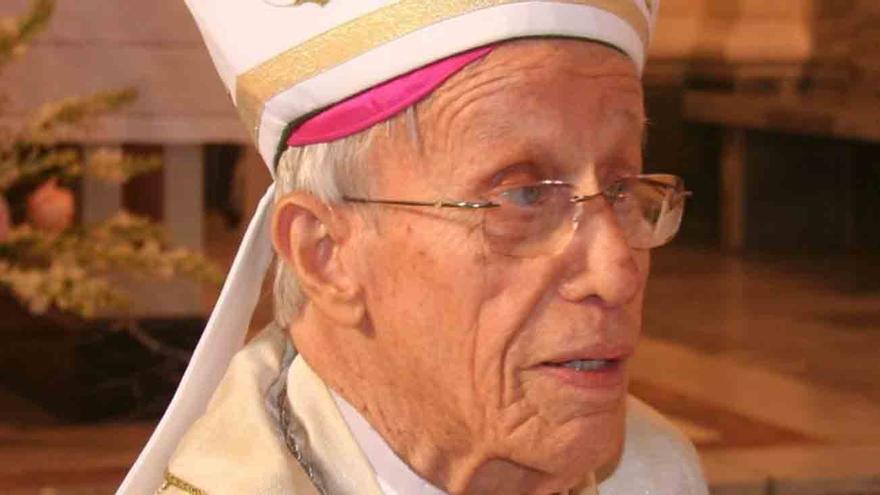
![]() 14ymedio, Havana, 8 August 2021 — The auxiliary bishop of Havana, Alfredo Petit Vergel, died this Saturday in the Cuban capital, at the age of 85, according to a note released by the San Julián De Los Güines parish.
14ymedio, Havana, 8 August 2021 — The auxiliary bishop of Havana, Alfredo Petit Vergel, died this Saturday in the Cuban capital, at the age of 85, according to a note released by the San Julián De Los Güines parish.
Born on July 24, 1936 in Havana, Petit studied at the College of the Brothers of the Christian Schools until entering the seminary El Buen Pastor, where he completed studies in Humanities and Philosophy, details the text published on the Parish Facebook website.
“The Pío Latinoamericano College in Rome welcomed him until he graduated with a Bachelor of Theology at the Pontifical Gregorian University, after which he received priestly ordination on December 23, 1961.” Back in Cuba, he served as parish priest of the Havana Cathedral and later of the El Salvador del Mundo parish in Havana’s Cerro neighborhood.
On November 15, 1991, Pope John Paul II appointed Petit bishop of San Cristóbal de La Habana, just at a time when the economic crisis after the fall of the socialist bloc worsened on the island. Beginning that year, the number of Cubans who approached the churches also grew after decades of fierce atheism.
In addition, Petit attended the Nueva Gerona parish on the Isle of Youth and at the time of his death he was pastor at the San Francisco de Paula parish in La Víbora and at the Santa Teresita chapel in the Santa Amalia neighborhood, in the municipality of Arroyo Naranjo.
In 2005, during the Congregation of the Synod of Bishops held in Cuba, Petit denounced that given the difficulty and “practically the impossibility of building new churches” on the Island, Catholics had been forced “to create the so-called ’houses of prayer’ or ’mission houses’, located in the peripheral neighborhoods and in the small towns and hamlets.”
Also in an interview he lamented the obstacles that limited the actions of the Church, such as the fact that the Government “has always controlled the number of priests in the country and there have never been enough to cover pastoral needs. Another difficulty has been the difficult access to the media.”
Petit was also one of the victims of the so-called Military Units to Aid Production (UMAP), the concentration camps that existed in Cuba between 1965 and 1968, intended mainly for homosexuals but also religious people and all those rejected in the Revolutionary Armed Forces.
In June 1966 he received a summons and was transferred together with a Jehovah’s Witness and common prisoners to a camp in Camagüey. In the aftermath of his stay in the countryside, his hands had lacerations caused by forced labor, such as when he had to erect a barbed wire fence without protective gloves.
A Bible, which the military allowed him to keep, was his ally to celebrate clandestine masses at night attended by the Catholics in the concentration camp. Petit hid the consecration wine in medicine bottles and his mother took on the job of bringing him the hosts.
Petit remained in detention until 1967, when all those over 27 years of age were ordered to be removed from the UMAP camps. Other beneficiaries of this actions were Fathers Jaime Ortega and Armando Martínez. Upon his departure, Archbishop Evelio Díaz entrusted Alfredo Petit Vergel with the parish of El Salvador del Mundo in El Cerro.
____________
COLLABORATE WITH OUR WORK: The 14ymedio team is committed to practicing serious journalism that reflects Cuba’s reality in all its depth. Thank you for joining us on this long journey. We invite you to continue supporting us by becoming a member of 14ymedio now. Together we can continue transforming journalism in Cuba.
